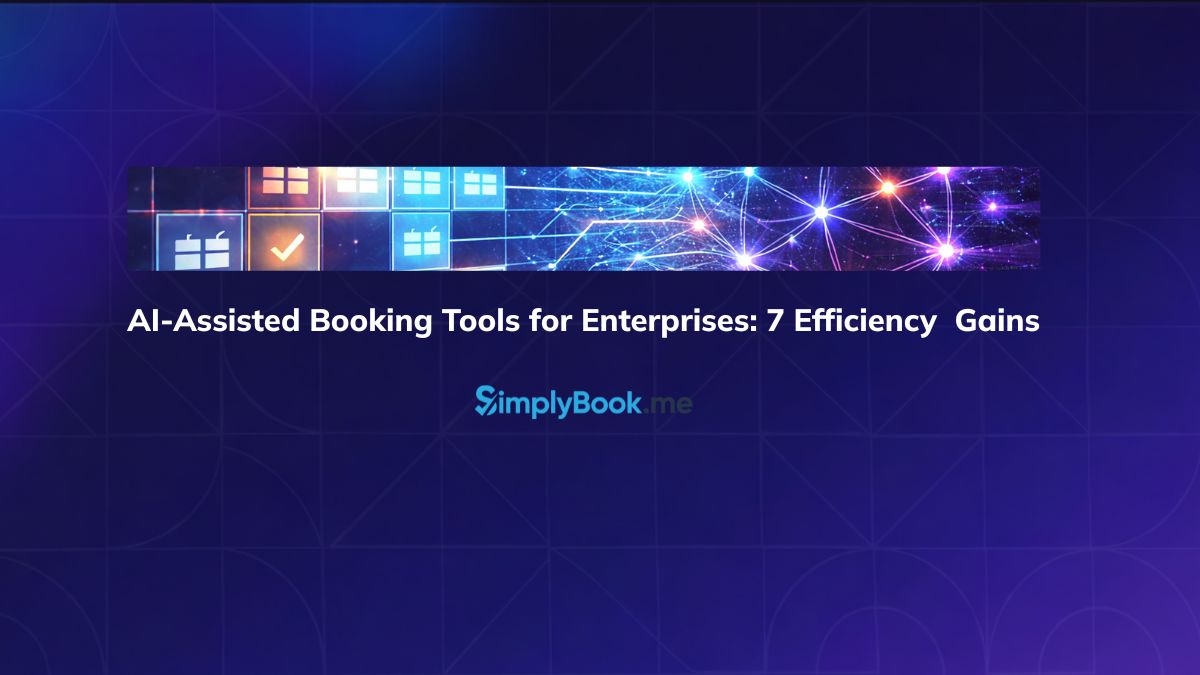6 Veränderungen in der Denkweise, die jeder Inhaber eines Kleinunternehmens für seinen Erfolg benötigt

This post is also available in:
![]()
![]()
![]()
![]()
![]()
![]()
![]()
Laut Statistik scheitern 50 % der kleinen Unternehmen innerhalb von fünf Jahren. Im Grunde hat jeder zweite Existenzgründer keinen Erfolg. Was ist der Unterschied zwischen denen, die es schaffen, und denen, die sich abmühen und zwangsläufig aufgeben? Finden wir es heraus!
Zunächst einmal ist eine so hohe Misserfolgsquote nicht auf einen Mangel an rentablen Geschäftsideen zurückzuführen; davon gibt es eine ganze Menge. Wir können auch nicht nur die Konkurrenz dafür verantwortlich machen – auf jedem wettbewerbsorientierten Markt gibt es jedes Jahr viele neue Anbieter, von denen viele jahrelang im Markt bleiben und zu einer festen Größe in der Branche werden.
Es kann sogar sein, dass Sie die beste Geschäftsidee aller Zeiten haben – und sie in den Bankrott führen. Sie können auch etwas auf die Beine stellen, das viele Leute als dumm oder unrealistisch bezeichnen würden, Ihre Vision verfolgen und allen Neinsagern das Gegenteil beweisen.
Der entscheidende Faktor ist die Denkweise des Unternehmers, der die Initiative ergreift. Der Erfolg oder Misserfolg Ihres Unternehmens ist untrennbar damit verbunden, wie Sie denken, planen und Ihre Strategien umsetzen. Mit der richtigen Einstellung können Sie sicherstellen, dass Ihr Unternehmen nicht nur die ersten fünf Jahre überlebt, sondern auch floriert und die idealen Kunden anzieht.
In diesem Artikel stelle ich Ihnen sechs Denkweisen vor, die Ihnen helfen werden, die schwierigen Gewässer des Unternehmertums zu meistern. Wenn Sie sich diese neuen Denkmuster zu eigen machen, können Sie Ihr Unternehmen in eine Erfolgsgeschichte verwandeln, die den Statistiken trotzt.
Warum die Denkweise für den Erfolg wichtig ist

Die Denkweise ist die Linse, durch die ein Unternehmer sein Unternehmen betrachtet, und sie kann Ihnen entweder kontinuierliches Wachstum bescheren oder Ihr Unternehmen allmählich in den Ruin treiben.
Stellen Sie sich zwei Coffeeshop-Besitzer vor: Der eine geht mit einer ausschließlich auf den Gewinn ausgerichteten Denkweise an sein Geschäft heran, kürzt, verwendet minderwertige Zutaten und ignoriert das Feedback seiner Kunden. Der andere Eigentümer legt Wert auf Qualität, Kundenerfahrung und ethische Beschaffung.
Während beide scheinbar das gleiche Ziel verfolgen, floriert das zweite Café mit der Zeit und hat einen treuen Kundenstamm, während das erste Café Schwierigkeiten hat, Kunden zu halten und schließlich aufgibt.
Die richtige Einstellung zum Erfolg ist der Kern, der bestimmt, wie man im Geschäftsleben vorgeht. Von wichtigen Entscheidungen über den Aufbau einer Markenstrategie bis hin zur Art und Weise, wie Sie auf gelegentliche Rückschläge reagieren, wird jede kleine und große Sache von Ihren Grundüberzeugungen als Unternehmer beeinflusst.
Nehmen wir zum Beispiel das Social Media Marketing: Es ist offensichtlich, dass unterschiedliche Denkweisen zu unterschiedlichen Ergebnissen führen. Schauen Sie sich die Instagram-Seite der Marke an, und Sie werden sofort erkennen, ob es ihnen mehr um den Verkauf oder um einen echten Mehrwert geht.
Ein Unternehmen, das sich darauf konzentriert, mit seinem Publikum in Kontakt zu treten, wird sinnvolle Inhalte erstellen, auf Kommentare reagieren und eine Community aufbauen. Im Gegensatz dazu wird ein Unternehmen, das soziale Medien lediglich als Plattform für Verkaufsgespräche betrachtet, wahrscheinlich feststellen, dass die Zahl seiner Follower stagniert und sein Engagement gering ist. Wenn Sie jemals an der Macht der Einstellung gezweifelt haben, sollten Sie sich die Zitate von David Gogginsansehen – seinePhilosophie der mentalen Stärke und des unerbittlichen Strebens nach Spitzenleistungen ist ein Beweis dafür, wie eine unerschütterliche Einstellung zu außergewöhnlichem Erfolg führen kann.
Unabhängig davon, ob Sie zum ersten Mal ein Unternehmen gründen oder ein erfahrener Unternehmer mit einer Reihe erfolgreicher Unternehmungen sind, finden Sie hier sechs Denkansätze, die Ihnen helfen, sich auf Ihre Ziele zu konzentrieren und gleichzeitig Stagnation, Selbstsabotage und Zeitverschwendung zu vermeiden.
6 Veränderungen in der Denkweise, die jeder Inhaber eines Kleinunternehmens für seinen Erfolg benötigt
1. Zeit ist Ihre wertvollste Ressource
Zeit, nicht Geld, ist Ihre wertvollste Ressource, wenn Sie ein Unternehmen führen.
Ein effektives Zeitmanagement ermöglicht es Ihnen, sich auf wichtige Aufgaben zu konzentrieren, die das Wachstum vorantreiben, z. B. die Entwicklung neuer Produkte, die Verbesserung der Kundenbeziehungen und die Verfeinerung Ihrer Gesamtstrategie.
Wenn Sie den Wert Ihrer Zeit und ihre Begrenztheit kennen, können Sie Ihre Arbeitslast nach Prioritäten ordnen und Ihre Geschäftsziele effizient erreichen.
Im Folgenden finden Sie einige Strategien, mit denen Sie Ihre Zeit optimal nutzen können:
- Vergeuden Sie keine Stunden mit trivialen Aufgaben. Delegieren oder automatisieren Sie sie, damit Sie sich auf das große Ganze konzentrieren können. Überlegen Sie, wie viel eine Stunde Ihrer Zeit wert ist. Wenn ein virtueller Assistent mehrere Stunden Ihres Tages für einen Bruchteil der Kosten freimachen kann, wäre es nicht sehr klug, weiterhin alles selbst zu machen.
- Planen Sie Ihren Tag, Ihre Woche und Ihren Monat auf der Grundlage von Prioritäten und einer langfristigen Vision und lassen Sie dabei etwas Raum für unerwartete Ereignisse. Dies kann Ihnen helfen, Ihre Ziele lange genug zu verfolgen, um erfolgreich zu sein.
- Nutzen Sie eine Zeiterfassungssoftware, um zu verstehen, wo Ihre Stunden bleiben, und nehmen Sie die notwendigen Anpassungen vor, um die Produktivität zu steigern.
- Setzen Sie künstliche Fristen für jede Aufgabe, damit sie nicht mehr Zeit in Anspruch nimmt, als sie sollte. Zeitlich begrenzte Ziele geben Ihnen ein Gefühl der Dringlichkeit und verhindern, dass Sie sich ablenken lassen.
Wenn Sie Zeit als Ihre wertvollste Ressource betrachten, werden Sie klügere Entscheidungen treffen und ein produktives Umfeld schaffen, in dem Sie und Ihr Unternehmen wachsen können.
2. Technologie ist dein Freund
Die schnell wachsende Welt der Technologie birgt ein immenses Potenzial für kleine Unternehmen.
Während große Unternehmen in der Regel zögern, sich zu verändern, und Monate, wenn nicht Jahre brauchen, um sich einem neuen Trend anzupassen, kann ein Kleinunternehmer eine Neuerung oft schon nach wenigen Tagen einführen und von den Vorteilen profitieren.
Die Suche nach den richtigen Werkzeugen zur Rationalisierung Ihrer Prozesse kann auf lange Sicht einen großen Unterschied machen. Von der Automatisierung von Routineaufgaben bis hin zum Einsatz von KI-Helfern, um alltägliche Aufgaben schneller zu erledigen – die Möglichkeiten im Bereich der Technologie sind unbegrenzt. Immobilienunternehmen können beispielsweise die Vorteile von KI-Chatbots nutzen, um Kunden rund um die Uhr zu unterstützen, Fragen zu beantworten und sogar Termine zu vereinbaren.
Diejenigen, die sich dem Wandel widersetzen und den technologischen Fortschritt ignorieren, gehören oft zu den 50 % der Unternehmen, die im Wettbewerb nicht überleben.
Hier sind einige weitere Beispiele:
- Eine Terminplanungssoftware wie SimplyBook.me kann Ihnen stundenlanges Hin- und Hertelefonieren ersparen. Indem Sie Ihren Kunden die Möglichkeit geben, Termine oder Reservierungen online zu buchen und die Zahlungsabwicklung zu automatisieren, entlasten Sie sich von Teilen des Geschäfts, die auch ohne Sie reibungslos funktionieren, und geben Ihre Zeit für wichtigere Aufgaben frei.
- Die Automatisierung von Dingen wie E-Mail-Marketing, Social-Media-Planung oder Inhaltserstellung durch KI-Marketingsoftware kann Ihnen helfen, eine solide Marketingstrategie für Ihr Unternehmen aufzubauen. Mit den richtigen Werkzeugen können Sie die Verwaltung mehrerer Mitarbeiter leicht überflüssig machen: KI kann viel schneller Ergebnisse liefern, und Sie brauchen nur ein zusätzliches Paar Augen, um sie in die richtige Richtung zu lenken.
- Je nach Art der Dienstleistung, die Sie anbieten, finden Sie wertvolle KI-Business-Tools für alles von Branding und Personalisierung bis hin zu Planung und Teammanagement. Die Nutzung des technologischen Fortschritts kann Ihnen den Vorsprung verschaffen, der Sie von der Konkurrenz abhebt.
In gewissem Sinne ist der Einsatz von Technologie in Ihrem Unternehmen gleichbedeutend mit einer Mentalität, die auf ständiges Wachstum und Anpassungsfähigkeit ausgerichtet ist. Sie gehen nicht nur mit der Zeit, sondern passen sich den Trends an und nutzen die verfügbaren Tools, um Ihr Unternehmen widerstandsfähiger und kundenfreundlicher zu machen.
3. Lernen durch Handeln
Wenn Sie wie ich ein Perfektionist sind, sind Sie vielleicht schon einmal in diese Falle getappt. Vor allem unter Jungunternehmern ist der Irrglaube verbreitet, dass alles perfekt sein muss, bevor man den ersten Schritt macht.
Manche Menschen nehmen sich Wochen, Monate und manchmal sogar Jahre Zeit, um jedes einzelne Konzept eines neuen Fachgebiets zu studieren, bevor sie sich trauen, etwas zu tun. Gleichzeitig gibt es aber auch Menschen, die mit einem Minimum an Wissen an die Sache herangehen und dabei alles lernen.
Wer hat Ihrer Meinung nach mehr Aussicht auf Erfolg?
Zwei Jahre später hat die erste Person scheinbar das gesamte Wissen, ist aber immer noch ein Neuling. In der Zwischenzeit hat die andere Person zwei Jahre tatsächliche Erfahrung mit dem Wachstum ihres Unternehmens, mit Fehlern und der Überwindung von Rückschlägen. Sie kennen vielleicht nicht alle möglichen Konzepte, aber sie lernen mit der Zeit genug und setzen alles sofort um, anstatt nur Wissen anzuhäufen.
Selbst wenn Sie kein Perfektionist sind, kann die Vorstellung, jedes Detail, jedes mögliche Ergebnis oder jeden einzelnen Schritt eines großen Projekts zu kennen, bevor Sie damit beginnen, lähmend sein. Wenn man die Angst vor dem Versagen, das Impostersyndrom und das Syndrom des glänzenden Objekts in Betracht zieht, ist die Wahrscheinlichkeit groß, dass man nicht einmal die Lernphase übersteht.
Und die ganze Mühe wäre umsonst gewesen.
Die wahre Magie entsteht, wenn Sie sich das Prinzip „Learning by doing“ zu eigen machen. Wenn man etwas unternimmt, auch wenn es nicht perfekt ist, kann man dabei lernen. Sie liefert Echtzeit-Feedback, eröffnet Wachstumschancen und führt oft zu Ergebnissen, die Sie vielleicht nicht vorhergesehen haben.
Sehen Sie es so: Keine noch so gute Planung kann die Lernerfahrung nachahmen, die sich aus dem tatsächlichen Tun ergibt. Man kann hundert Bücher über das Fahrradfahren lesen, aber man lernt es erst richtig, wenn man auf das Rad steigt und in die Pedale tritt.
In der Geschäftswelt bedeutet dies, kalkulierte Risiken einzugehen, neue Strategien auszuprobieren, neue Trendprodukte auf den Markt zu bringen oder neue Märkte zu erschließen. Sie können einen soliden Geschäftsplan erstellen, aber Sie können nicht jede Reaktion oder jedes Ergebnis vorhersagen, und das ist in Ordnung. Der Schlüssel ist, anzufangen, sich zu bewegen, den ersten Schritt zu tun.
4. Scheitern ist nicht das Ende, sondern ein Sprungbrett

Scheitern. Ein Wort, das jedem Unternehmer einen Schauer über den Rücken jagen kann. In unserer erfolgsorientierten Gesellschaft wird Scheitern oft als Zeichen von Schwäche oder als Ende einer Reise angesehen. Aber das ist eine Perspektive, die geändert werden muss.
Entgegen der landläufigen Meinung ist das Scheitern nicht das Ende, sondern eher ein Sprungbrett auf dem Weg zum Erfolg. Es ist ein wesentlicher Bestandteil des Wachstums und des Lernens, eine Gelegenheit zu analysieren, was falsch gelaufen ist und wie man es beim nächsten Mal besser machen kann.
Man kann auf dem Weg dorthin viel scheitern und trotzdem ein erfolgreiches Unternehmen aufbauen. Die meisten Menschen, die beeindruckende Ergebnisse erzielen, haben in der Regel eine Handvoll Misserfolge hinter den Kulissen zu verzeichnen.
Für ein kleines Unternehmen kann sich ein Misserfolg auf viele Arten manifestieren: eine Dienstleistung, die den Kunden nicht gefallen hat, eine Marketingkampagne, die nicht erfolgreich war, oder ein Geschäft, das nicht zustande gekommen ist. Auch wenn diese Erfahrungen enttäuschend und sogar schmerzhaft sein können, sind sie keine Sackgassen.
Jedes Scheitern bringt Einsichten, Lektionen und Weisheiten, die man sonst nicht gewonnen hätte. Sie lehren Resilienz, Anpassungsfähigkeit und Ausdauer. Sie zeigen Ihnen, was nicht funktioniert, was oft ebenso wertvoll ist wie das Wissen, was funktioniert.
Erfolgreiche Menschen und Unternehmen wissen, dass Scheitern nichts ist, was man fürchten oder vermeiden muss. Es ist etwas, das man als Teil der Reise annehmen sollte. Solange Sie vorwärts scheitern und nicht immer wieder die gleichen Fehler machen, haben Sie noch eine Chance auf Erfolg.
5. Jeder Kunde zählt
Um auf dem heutigen wettbewerbsorientierten Markt Kunden zu gewinnen, reicht es nicht aus, nur Dienstleistungen anzubieten. Es geht darum, den Wert eines jeden Kunden zu verstehen und sich auf die Lösung seiner spezifischen Probleme zu konzentrieren.
Wenn Sie die Probleme Ihrer Kunden erkennen und angehen, schaffen Sie mehr als nur einen Verkauf; Sie schaffen Vertrauen und Loyalität. Anstatt einfach ein Produkt zu entwickeln und zu hoffen, dass es den Leuten gefällt, sollten Sie sich darauf konzentrieren, die realen Probleme eines bestimmten Kunden zu lösen.
Indem wir den Bedürfnissen jedes einzelnen Kunden Priorität einräumen, bauen wir sinnvolle Beziehungen auf und schaffen eine Gemeinschaft treuer Kunden, die sich gesehen und geschätzt fühlen. Hören Sie sich das Feedback an, haben Sie ein offenes Ohr für ihre Anliegen und zeigen Sie, dass Sie ihre Meinung schätzen.
Um Kunden zu binden, müssen Sie Ihre Angebote verstehen, auf sie eingehen und sie kontinuierlich verbessern. Kunden, die sich wertgeschätzt fühlen, kommen mit größerer Wahrscheinlichkeit wieder und empfehlen Sie ihren Freunden weiter.
Wenn man darüber nachdenkt, gibt es nicht viele kleine Unternehmen, die einen schlechten Kundenservice haben. Und diejenigen, die sich nicht um die Menschen kümmern, denen sie dienen, halten sich meist nicht lange über Wasser. Achten Sie darauf, dass es Ihnen nicht so ergeht wie ihnen und wählen Sie einen kundenorientierten Ansatz, egal in welcher Branche Sie tätig sind.
6. Langfristige Vision schlägt kurzfristigen Gewinn

Bei geschäftlichem Erfolg geht es nicht nur um sofortige Gewinne und schnelle Erfolge. Kurzfristige Gewinne können zwar verlockend sein, doch fehlt es ihnen oft an Substanz und Nachhaltigkeit.
Die meisten Systeme, mit denen man schnell reich werden kann, sind auf lange Sicht nicht nachhaltig. Selbst wenn Sie einen schnellen Erfolg erzielen, werden Sie wahrscheinlich feststellen, dass Sie es versäumt haben, eine solide Grundlage zu schaffen, die Sie brauchen, um über Jahre hinweg im Geschäft zu bleiben.
Sie können und sollten Trends nutzen, um Ihrem Unternehmen zu einem größeren Bekanntheitsgrad zu verhelfen oder einen technologischen Vorteil zu verschaffen, aber das darf nicht Ihr Hauptziel sein. Eine ausschließliche Konzentration auf unmittelbare Ergebnisse wird unweigerlich zu kurzsichtigen Entscheidungen führen, die das langfristige Wachstum und die Stabilität Ihres Unternehmens beeinträchtigen.
Eine langfristige Vision zu haben bedeutet, über den schnellen Gewinn hinauszuschauen und zu überlegen, wie sich Ihre Entscheidungen auf die Zukunft Ihres Unternehmens auswirken. Es geht darum, eine solide Grundlage zu schaffen, in Beziehungen zu investieren, Produkte oder Dienstleistungen zu entwickeln, die einen dauerhaften Wert haben, und eine Marke zu schaffen, die den Test der Zeit übersteht.
Wenn Sie messbare langfristige Ziele haben, erhalten Sie eine Richtung, einen Zweck und einen zusammenhängenden Plan, der mit den Grundwerten Ihres Unternehmens übereinstimmt. Sie gewährleistet auch eine kontinuierliche Verbesserung und Anpassungsfähigkeit, die für jedes vorausschauende Kleinunternehmen wichtig sind.
Kurzfristige Gewinne mögen zwar unmittelbare Befriedigung verschaffen, sind aber oft flüchtig und unbeständig. Eine Unternehmensstrategie, die auf einer langfristigen Vision beruht, bietet dagegen einen Fahrplan für nachhaltiges Wachstum und Erfolg.
Einpacken
Der Weg zum Erfolg eines Kleinunternehmens ist mit mehr als nur guten Vorsätzen gepflastert; er erfordert strategisches Denken und die richtige Einstellung. Indem Sie diese sechs Denkweisen verinnerlichen, schaffen Sie die Voraussetzungen für einen Erfolg, der über Zahlen hinausgeht und ein florierendes und widerstandsfähiges Unternehmen hervorbringt, das jedem Sturm trotzen kann.
Autor Bio

Juliet Dreamhunter ist KI-Beraterin und zertifizierter Zielerfolgscoach. Auf ihrer Website Juliety spricht sie über effektive Strategien zur Verbesserung der persönlichen und geschäftlichen Produktivität und bespricht beliebte Software und KI-Tools.




Comments
0 commentsNo comments yet